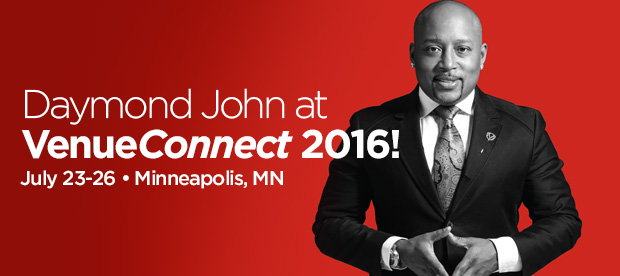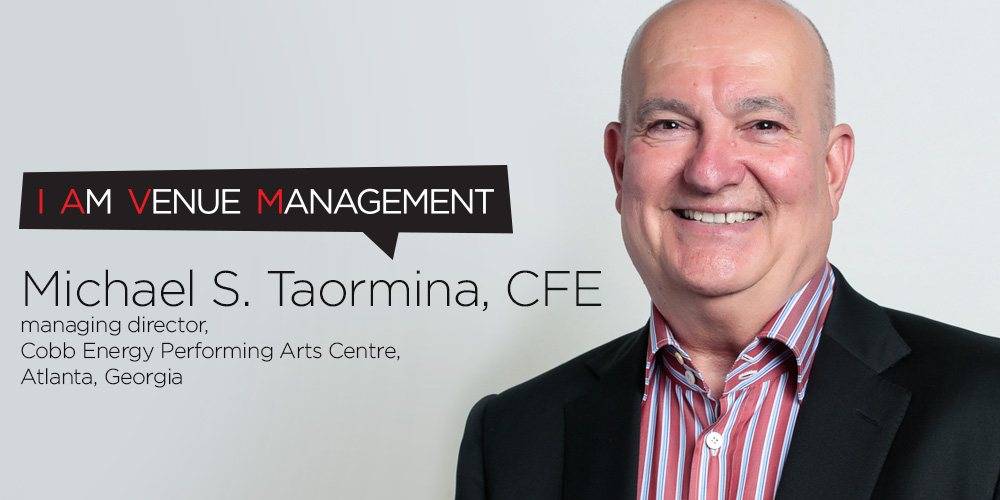STRIVR Launches Fan Experience Division

It’s already eight days into the new year and I’ve yet to talk about virtual reality (VR). Looks like, though, there’s something new you may be interested in. Yesterday, January 7, STRIVR Labs Inc. announced it launched a Fan Experience and VR Production division to focus on bringing fans and venues unique experiences through technology.
STRIVR recently created an immersive and interactive experience when it partnered with Madison Square Garden and the New York Rangers. Fans had the chance to become a Rangers goalie and block game-like shots in a virtual Madison Square Garden.
“STRIVR has been an incredible partner to MSG,” said Andrew Lustgarten, executive vice president of corporate development and strategy of The Madison Square Garden Co., in a statement. “You truly feel like you are on the ice at The Garden, and it brings our fans to places they’ve never been before.”
The company’s new division will be lead by Logan Mulvey, a former Hollywood film executive, and Brian Murphy, former head of finance and business development at GoDigital and Amplify under Mulvey.
STRIVR was found in February 2015 and is quickly making a name for itself as a sports training platform. There are 23 organizations and universities—such as the Minnesota Vikings, the Washington Capitals, Stanford University, and Clemson University—that make use of its technology to train athletes.
(Image: Twitter)
Javits Convention Center Plans $1 Billion Expansion

New York Governor Andrew Cuomo announced today, January 7, a $1-billion plan to expand the Jacob K. Javits Convention Center in New York City.
“The Javits Center has long been an economic generator for this state, but we want to build and expand it to ensure it remains a premier venue for the next generation,” Governor Cuomo said in a statement. “Through one of the most aggressive development plans in the history of the State of New York, we are transforming one of our largest convention centers into an unparalleled, world-class venue. The new Javits Center will continue to garner millions in economic activity, create jobs and keep New York’s economic momentum moving forward.”
The plan calls for increasing the center’s size by more than 50 percent (from 2.1 million square feet to 3.3 million square feet), increasing truck parking (a 480,000-square-foot truck garage), increasing solar power (a 34,000-square-foot solar array), and creating a 2,500-person capacity green roof terrace with Hudson River views.
“For nearly 30 years, the Javits Center has supported thousands of jobs for New Yorkers, and the center’s expansion will create thousands more for tomorrow,” said Alan Steel, president and CEO of the New York Convention Center Operating Corp, in a statement. “Every event held at Javits strengthens New York’s economy, and with more exhibition and meeting space, this one-of-a-kind facility will realize its true potential as an economic generator. With a new truck marshaling facility on site, events can move in and out faster than ever before, saving our clients time and money and reducing the number of trucks on the streets.”
Cuomo’s proposal for Javits is projected to create 4,000 full-time jobs and 2,000 part-time jobs. The proposal’s cost will be paid for by the center within existing resources, and construction is set to begin in 2016.
“Manhattan’s West Side has become New York’s next great neighborhood, and this project capitalizes on the worldwide draw of this area,” said Henry Silverman, chairman of the board of directors for the New York Convention Center Operating Corp. and the New York Convention Center Development Corp., in a statement. “With 500,000 square feet of contiguous exhibition space on one level, the Javits Center will rival any similar venue across the nation, providing a host of unique meeting spaces that will entice businesses from around the world to unveil their latest innovations here.”
(Image: Office of the Governor Andrew Cuomo)
Las Vegas Arena Named T-Mobile Arena

The upcoming 20,000-seat arena from AEG and MGM Resorts International in Las Vegas now has a name: T-Mobile Arena.
“We’re going to light up Las Vegas in magenta and give everyone who visits T-Mobile Arena a chance to experience what it means to be Un-carrier!” said Mike Sievert, chief operating officer of T-Mobile, in a statement. “T-Mobile Arena will have the biggest shows in a town known for big shows and T-Mobile customers will always be treated like VIPs with priority access and exclusive benefits.”
T-Mobile customer benefits at the arena include a dedicated fast-track VIP venue entrance at every event, exclusive tickets and premium VIP experiences at select events, and pre-sales and seat upgrade opportunities. Charging stations will be located throughout the arena, too, for everyone.
“T-Mobile is disruptive and irreverent − a perfect complement to our vision of entertainment in Las Vegas,” said Todd Goldstein, chief revenue officer for AEG, in a statement. “Their commitment to the best and the most cutting-edge technology and customer experience makes them ideal for Las Vegas’ newest showplace for the top sports and entertainment events. There will be no finer destination to bring T-Mobile’s Un-carrier revolution and tech innovation to life than T-Mobile Arena where guests, performers and other partners will truly benefit from the overall experience.”
T-Mobile Arena already has events confirmed, such as musical act The Killers performing on opening night, April 6. Other events include UFC 200 in July, Harlem Globetrotters, George Strait, Garth Brooks, Dixie Chicks, Janet Jackson, UNLV/Duke college basketball, and the 2016 PBR World Finals.
“Today’s announcement highlights T-Mobile’s commitment to both its customers and the community here in Las Vegas − the Entertainment Capital of the World,” MGM Resorts International’s President Bill Hornbuckle said in a statement. “T-Mobile has set itself apart through its industry-changing Un-carrier moves that put the customer first. Together with our arena founding partners, we will deliver even more entertaining and engaging fan experiences in what is destined to be one of the world’s leading arenas.”
(Image: AEG)
Daymond John Announced as VenueConnect Keynote Speaker

We are excited to let you know that Daymond John will be our opening keynote speaker at VenueConnect 2016 in Minneapolis, Minnesota, July 23-26.
John is the CEO of FUBU, a “shark” on ABC’s Shark Tank, and author of the new book, The Power of Broke. He will offer attendees his expert view on growing business, leveraging technology, and harnessing desperation and adversity to build powerful, meaningful brands. He has received more than 35 awards over the years, including the Brandweek Marketer of the Year, Advertising Age Marketing 1000 Award for Outstanding Ad Campaign, and Ernst & Young’s New York Entrepreneur of the Year Award. Last year, the White House appointed him Global Ambassador of Entrepreneurship as part of the PAGE Program where he will work with underserved entrepreneurs and emerging digital influencers to help them build customer bases and brands.
VenueConnect 2016 registration will open soon. In the meantime, sign up now to be notified when early-bird rates become available. See you in Minneapolis!
I Am Venue Management: Michael S. Taormina, CFE

You, as an IAVM member, are our most important asset. Without your commitment to the association and to the venue management industry, we wouldn’t be here. Because of your support, we are featuring member profiles in our I Am Venue Management series. If you are interested in participating in the I Am Venue Management series, please visit http://www.iavm.org/i-am-venue-management-share-your-story.
If I wasn’t doing this I’d be an: actor, singer, dancer.
Most impressive person I’ve ever met was: HRH Prince Charles.
I unwind by: listening to classical music and reading a good book.
On my desk right now is: a lot of paperwork, LOL.
My favorite IAVM conference I ever attended was: PAMC. It always ROCKS.
If I were on the other side of the stage I’d be an: actor, singer, dancer.
One trait an up-and-coming venue manager should have is: patience.
One up-and-coming venue star in the industry is: Jenny Pollock.
One of my goals for this year is to: retire on Dec. 31, 2015, YES!
How do you plan to help elevate the profession? Continue to be a mentor.
Where do you see new growth opportunities in the profession? Small and mid-size communities and the development of outdoor festivals.
How do you stay current with industry trends and developments? Through social media and IAVM.
Who are three people you’d invite to a dinner party and why? Pope Francis for his commitment to humankind; Harry Connick, Jr., for his commitment to his profession and music education and to our hometown – New Orleans; and Stephen Sondheim for his brilliant musical compositions for the American Broadway stage.
Michael S. Taormina, CFE, is managing director of the Cobb Energy Performing Arts Centre in Atlanta, Georgia.
Do you want to receive a Front Row News weekly digest?
Categories
- Allied (861)
- Architecture (147)
- Arenas (747)
- Career (897)
- Convention Centers (895)
- Education (623)
- Events (1,544)
- Food & Beverage (193)
- Foundation (113)
- Guest Experience (1,496)
- Industry News (2,270)
- Leadership (1,888)
- Marketing (150)
- Membership (2,000)
- Music (213)
- Performing Arts Centers (454)
- Professional Development (409)
- Research (127)
- Safety & Security (442)
- Sports (763)
- Stadiums (608)
- Student (159)
- Technology (516)
- Ticketing (92)
- Touring (82)
- Trends (364)
- Uncategorized (756)
- Universities (218)
- Video (25)
- Young Professional (198)
Twitter Feed
- Twitter feed loading
Recent Posts
- Monumental Sports & Entertainment Unveils Phase One Artists for the District Arts Collection, Transforming MSE’s New Arena into a Living Civic Landmark
- Cobb Convention Center Atlanta Reopens After a Major Renovation and Reveals A New Logo
- Orange County Convention Center Announces Appointment of Heather Peeples as Fiscal & Operational Support Manager
- College Park Center and Texas Hall Welcome Kristina Hill to Executive Director Role
- Cincinnati Convention Center Appoints Brian Clark as Assistant General Manager
Categories
- Allied
- Architecture
- Arenas
- Career
- Convention Centers
- Education
- Events
- Food & Beverage
- Foundation
- Guest Experience
- Industry News
- Leadership
- Marketing
- Membership
- Music
- Performing Arts Centers
- Professional Development
- Research
- Safety & Security
- Sports
- Stadiums
- Student
- Technology
- Ticketing
- Touring
- Trends
- Uncategorized
- Universities
- Video
- Young Professional
Archives
- January 2026
- December 2025
- November 2025
- October 2025
- September 2025
- August 2025
- July 2025
- June 2025
- May 2025
- April 2025
- March 2025
- February 2025
- January 2025
- December 2024
- November 2024
- October 2024
- September 2024
- August 2024
- July 2024
- June 2024
- May 2024
- April 2024
- March 2024
- February 2024
- January 2024
- December 2023
- November 2023
- October 2023
- September 2023
- August 2023
- July 2023
- June 2023
- May 2023
- April 2023
- March 2023
- February 2023
- January 2023
- December 2022
- November 2022
- October 2022
- September 2022
- August 2022
- July 2022
- June 2022
- May 2022
- April 2022
- March 2022
- February 2022
- January 2022
- December 2021
- November 2021
- October 2021
- September 2021
- August 2021
- July 2021
- June 2021
- May 2021
- April 2021
- March 2021
- February 2021
- January 2021
- December 2020
- November 2020
- October 2020
- September 2020
- August 2020
- July 2020
- June 2020
- May 2020
- April 2020
- March 2020
- February 2020
- January 2020
- December 2019
- November 2019
- October 2019
- September 2019
- August 2019
- July 2019
- June 2019
- May 2019
- April 2019
- March 2019
- February 2019
- January 2019
- December 2018
- November 2018
- October 2018
- September 2018
- August 2018
- July 2018
- June 2018
- May 2018
- April 2018
- March 2018
- February 2018
- January 2018
- December 2017
- November 2017
- October 2017
- September 2017
- August 2017
- July 2017
- June 2017
- May 2017
- April 2017
- March 2017
- February 2017
- January 2017
- December 2016
- November 2016
- October 2016
- September 2016
- August 2016
- July 2016
- June 2016
- May 2016
- April 2016
- March 2016
- February 2016
- January 2016
- December 2015
- November 2015
- October 2015
- September 2015
- August 2015
- July 2015
- June 2015
- May 2015
- April 2015
- March 2015
- February 2015
- January 2015
- December 2014
- November 2014
- October 2014
- September 2014
- August 2014
- July 2014
- June 2014
- May 2014
- April 2014
- March 2014
- February 2014
- January 2014
- December 2013
- November 2013
- October 2013
- September 2013
- August 2013
- July 2013
- June 2013
- May 2013
- April 2013
- March 2013
- February 2013
- January 2013
- May 2012
- March 2012
- December 2011
- November 2011
- October 2011
Recent Comments
- Frank Bradshaw, Ph.D., CVE on John Meyer, CVE, a Tireless Advocate of Certification for Venue Professionals, Has Died
- Neil Sulkes on Hilary Hartung, Friend to Many in Venue Marketing, Has Left Us
- Jason Parker, CVE on The Devastation of Hurricane Helene and How We Can Support One Another
- Larry Perkins on Touhey Testifies Against Speculative Ticketing Before Congressional Subcommittee
- Peter Secord on Major Players for Planned Elkhart Amphitheater Were in the Mix at VenueConnect
